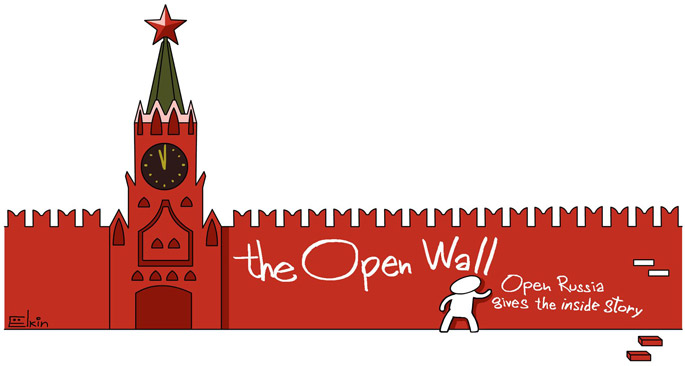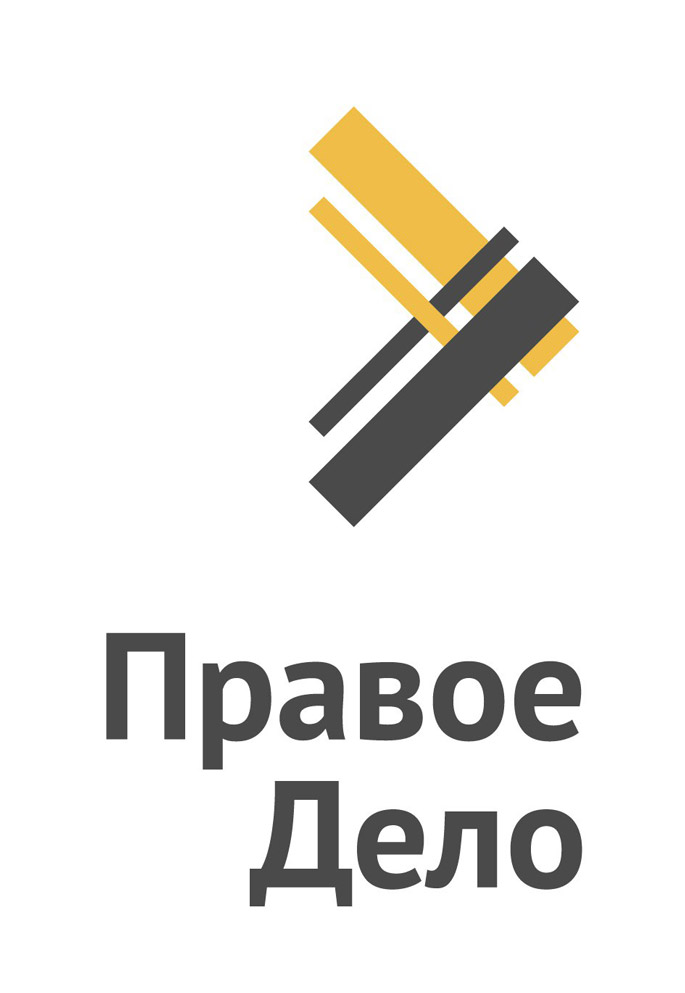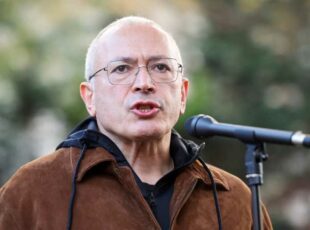Russia’s ‘new’ political party

Russia’s ‘new’ political party
Remember Boris Titov? The Presidential Ombudsman for Entrepreneurs’ Rights, who was once a co-chairman of the Right Cause (Pravoe Delo) party, which, like him, sort of disappeared. Well, he’s back in the limelight, with a new electoral project, which is going to be shaped around the same party, but apparently with a new name. The question is, why?

We recently heard that Oksana Dmitrieva, a popular politician from St Petersburg, and a member of the State Duma, was going to join Titov’s ‘new’ party. Still, for all Dmitrieva’s popularity, Russian political analysts have grave doubts about Right Cause’s chances in the upcoming September elections to the State Duma. So why engage in an expensive party-building project in the absence of any hope of getting your party into the Duma?
“The Kremlin lot are quite smart. They clearly anticipate a growing barrage of criticism from the liberal, pro-European camp. So they’re thinking: if you can’t stem the tide, ride it.” That is the opinion of pundit Dmitrii Oreshkin.
He believes that the overarching aim of this new political project is to help fight the real opposition candidates. “Monsieur Titov is quite the System’s man, a tame man; and the project is being created in order to present him as an alternative to PARNAS, and, perhaps, to Yabloko, although this to a lesser extent, as Yabloko is itself part of the System. We’re talking here about literally a couple of percentage points. If they succeed in ‘nibbling off’ a bare 1.5% from the 5% threshold, which PARNAS requires to get in to the Duma, that is practically ‘mission accomplished.’”
Which makes the job of working out the regions where Right Cause is going to focus its campaign, quite easy. “The pro-western liberal electorate is concentrated in the post-industrial centres of Moscow, St Petersburg and Yekaterinburg. There are, at most, thirty constituencies where PARNAS and Yabloko stand an above zero chance of getting their single mandate candidates in,” suggests Oreshkin.
Alexander Kinyov, another political analyst, also mentions the potential ‘spoiler’ role that Right Cause might play. Nevertheless, he thinks that the party’s ranks could yet be filled with those who might really want to fulfil their liberal political ambitions. “There are some representatives of the notionally democratic, liberal camp, who hold political ambitions. On the one hand, they don’t want to be seen joining the radicals, but on the other hand, are quite wary of allying themselves with the government.” He believes that being a ‘spoiler’ and having political ambitions are not mutually exclusive. “Different participants in a project often pursue different political goals: some engage in honest struggle, others try to manipulate someone else.”
Kinyov offers another possibility: of Right Cause being viewed as some sort of a fail-safe option for the government. “If, for whatever reason, representatives of the liberal part of the political spectrum are denied the opportunity to participate in the elections, the presence of at least one ‘opposition’ party, such as Right Cause, would allow the regime to claim that they had held democratic elections, representing different shades of the political spectrum.”
Coming back to Oksana Dmitrieva, Dmitrii Oreshkin see this as, “good news for Titov who is, after all, a joker in the pack, while Oksana is a well-known person enjoying considerable support in St Petersburg, one of the footholds of the liberal electorate. They might not vote for Titov, but might well choose Dmitrieva. Which means that the Titov-Dmitrieva tandem could realistically get 2% of the votes, if not more.”
The regime’s strategy for the Duma elections is thus not difficult to understand. “If Right Cause gets seats in the Duma, the Kremlin will be happy, if they don’t get in but gain just 2-3% of the votes, the Kremlin would still be pleased. It’s a win-win situation for them,” says Dmitrii Oreshkin.
This is all about muddying the waters. The Kremlin has to prevent truly independent deputies from getting into the State Duma, and yet, at the same time, so as to reduce criticism of those tactics at home and abroad, it has to balance this with an alternative that could be confused with a real opposition.
For the real opposition, the strategy needs to be the reverse: to highlight the foul play, and to publicise the existence of a real alternative. And that isn’t going to be easy.



